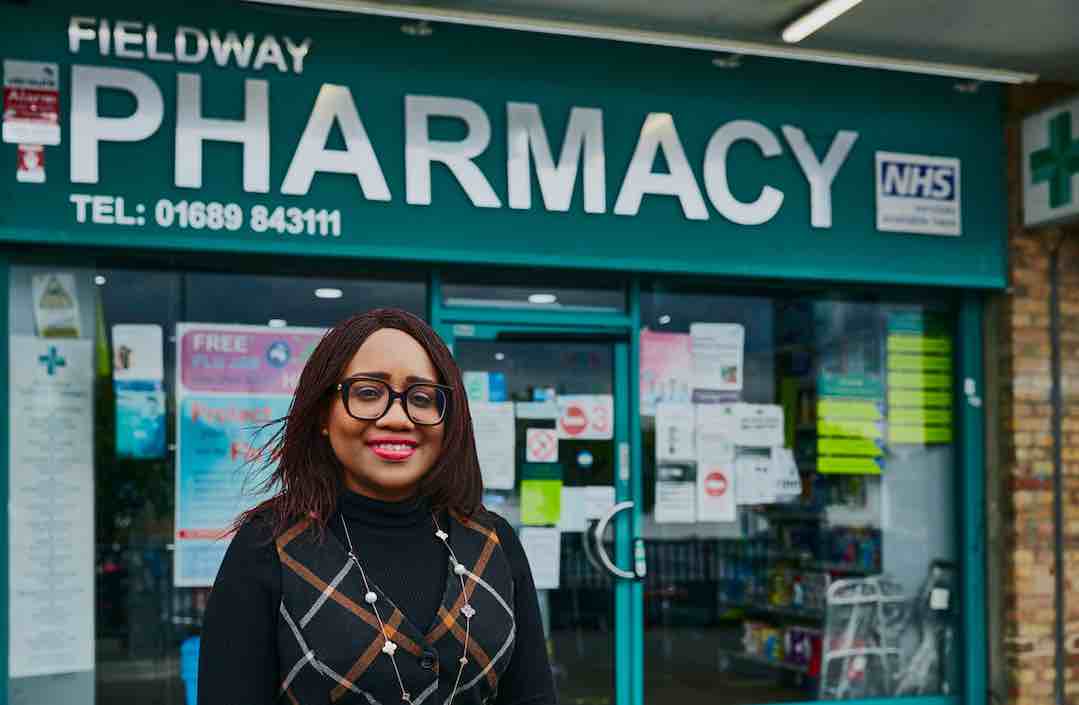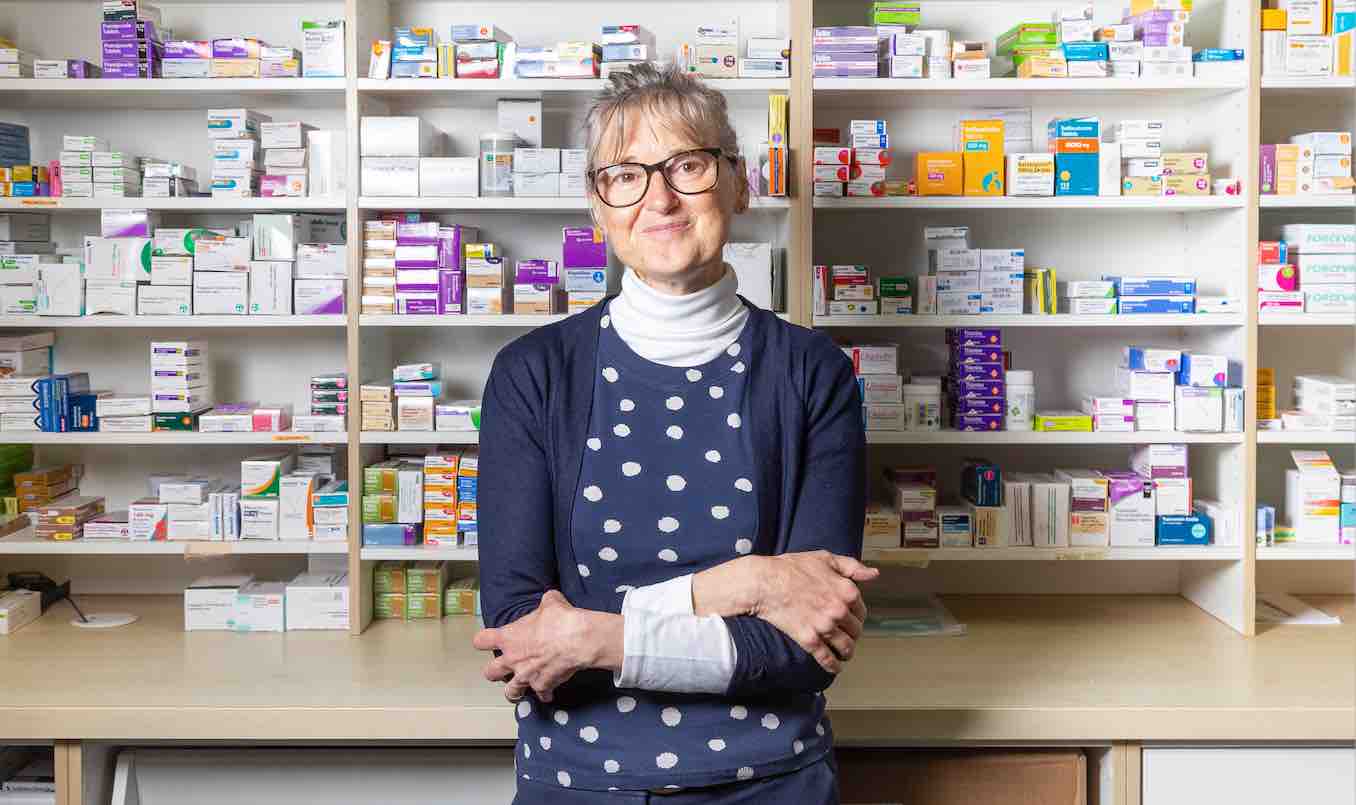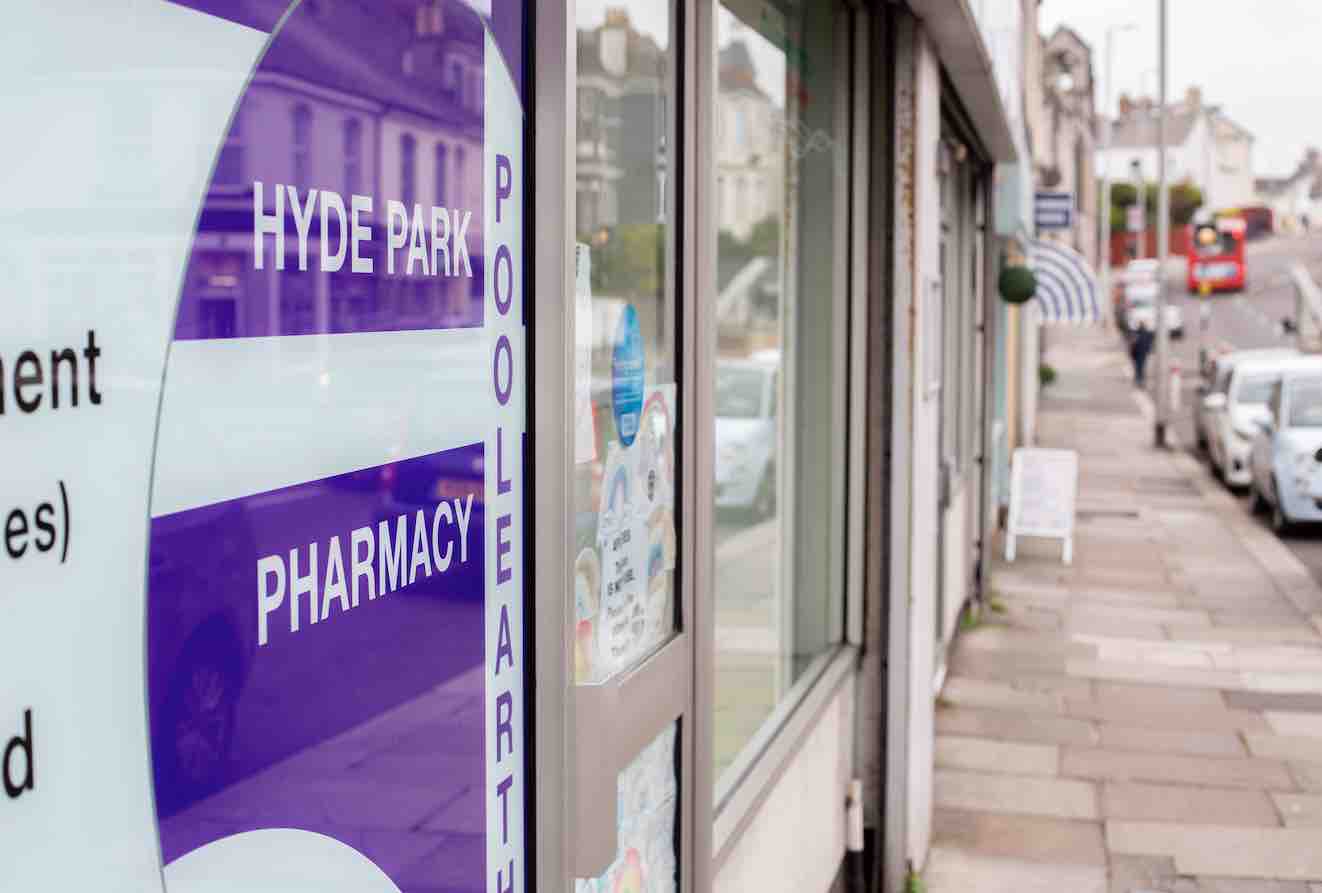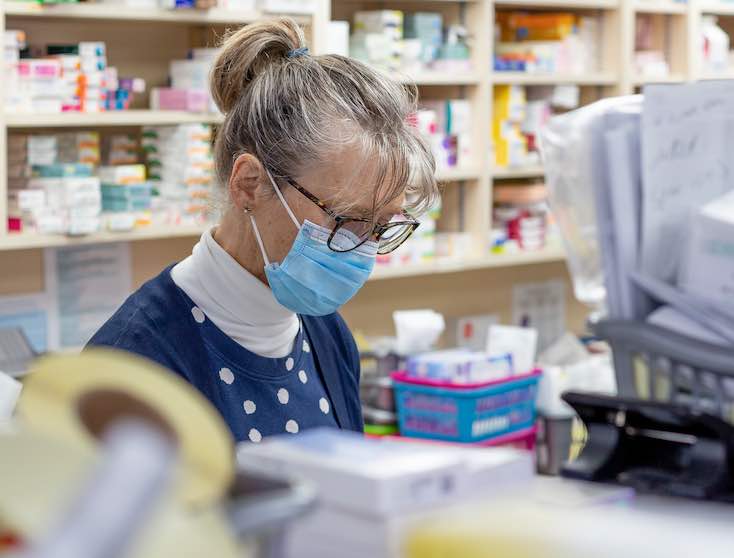Building the future - part three
In Views
Follow this topic
Bookmark
Record learning outcomes
Seven community pharmacists tell us what they're working on, and what they'd like to do next. We finish with Ifesi Anyamene, of Fieldway Pharmacy in Croydon, Sian Retallick of the Poolearth group in Plymouth and South Devon, and Waheedat Owodeyi of PharmacyExprezz in Great Yarmouth.
 Ifesi Anyamene
Ifesi Anyamene
Ifesi Anyamene opened Fieldway Pharmacy in Croydon from scratch 10 years ago. “I was locuming in the area and I realised that pharmacy provision was not adequate for the people in Fieldway,” she says. “That’s why we applied for a licence.”
The 45 hours a week pharmacy sits in a deprived part of New Addington. There’s sheltered accommodation across the road and a medical centre directly opposite. Ifesi’s husband and brother are partners in the business, but she’s centre stage day-to-day.
“I’ve no regrets – just lots of hard work,” Ifesi says. “The best bit of the job is the satisfaction you get from people you have helped, coming back to you month in, month out, because they trust you. Like one mum – a customer of ours since we opened – who came in with a child she thought had just a rash. She came in for creams, but by signposting her, she found out her child was allergic to milk.
“I have an autistic couple – they wanted lansoprazole made by Accord. It had to be yellow. The Accord brand was out of stock. I found a product from Almus made by Accord. It’s yellow, but that didn’t convince them. When I showed them the patient information leaflet, the guy almost hugged me. I ordered 20 packs, tying up money, but he would have gone back to the doctor, so I’m saving the NHS money. This morning, I got a discharge note which said ‘stop sodium valproate from May 20’, but the GP had prescribed it again. Nobody is measuring this.”
My priority for the business is staying afloat. A lot of pharmacies have folded; I don’t want to be part of those statistics.
Ifesi says her business is still growing in some aspects – in others not. Prescriptions are static. There’s competition from online or local pharmacies who will deliver, although she says patients still call her for advice about a prescription they got somewhere else. She has, however, seen a rise in OTC business over the past year. “I tell the girls that no request is too small,” she says. “Personal service is what we do here. Even when we were allowed to close during the pandemic, we didn’t. People just walk in here – ‘the pharmacist knows what I want’, ‘she knows the one I like’, they say.”
I ask Ifesi what her priority is for 2021 and she’s in no doubt. “My priority for the business is staying afloat. A lot of pharmacies have folded; I don’t want to be part of those statistics.” She says she spends too much time chasing stock, recommending alternatives when she has exhausted options. “If we could work with the doctors, I could save so much time, and the cost involved in sourcing things.” She says if she had access to the GP record, she could save time for patients too. “There should be better guidance for primary care on how everybody should be used to their true potential.”
Services to fill the gap are in short supply. The minor ailments scheme has folded; Ifesi used to do 400 MURs – also now history. “The replacement services, like DMS, are not coming in the same,” she says. “The CPCS has not taken off here. Getting referrals is a problem.”
Fieldway Pharmacy provides flu vaccinations, there’s a sexual health service and Ifesi is getting referrals for the CPCS from NHS111 (two or three a week, mostly at weekends). She also runs a private travel clinic.
As PCN lead for the area, Ifesi thinks the problem with the GP CPCS is the current priority to do Covid vaccinations – the health centre is the only provider in the area. A meeting is arranged for next month and the LPC is looking at a co-ordinated approach.

“I’m disappointed we’re not used for Covid vaccinations,” she says. “When the pandemic started, people who were anxious about the virus relied on us a lot for information. They came to us when it was time for their vaccinations too – we do flu, so they thought we would do Covid; they are still coming to us now. We have a lot of BAME people in this area, a lot of them were hesitant, coming to ask us for advice. I’ve had a gentlemen say to me ‘I’m not taking it unless you are providing it’.”
Ifesi is doing her independent prescribing course at the moment. “That has been an eye opener,” she says. “I can do an INR; I can do a hypertension intervention. There are people in my class from Scotland. They have the Pharmacy First service. We need that in England.”
She says that in her area, people who can’t afford treatment will seek a GP appointment for minor conditions like constipation.
“Avicenna has been a great help to me,” says Ifesi (she is an Avicenna Plus member). She finds sharing problems and concerns on social media a huge benefit too. “You find out what are valid problems and preferred solutions you wouldn’t think of. Seeing others doing things you are thinking about can be inspiring. It gives me ideas.”
 Sian Retallick
Sian Retallick
Sian Retallick is managing director and head pharmacist at Poolearth Ltd. Brought up in the valleys in South Wales, her first foray into community pharmacy was via a Saturday job in her local Boots store while she was still at school. Coming from what she describes as “a very community minded culture, where everyone knows everyone and looks out for everyone” and encouraged by the pharmacists there, Sian says: “I felt a connection as I like people and learning, and thought pharmacy would be a profession I might enjoy.”
Sian chose to study at Bradford, despite never having been to Yorkshire before. She says she was “blown away by the culture mix”, before spending her sandwich course “blessed” to work at the Bradford Royal Infirmary and Leeds Hospital, as well as what was then Beechams in Leatherhead, Surrey.
A stint locuming in community pharmacies in London reignited what Sian describes as her “passion for listening to people’s health struggles and adding value to patients”. This steered her back to her community roots.
Her ownership journey began at Hyde Park Pharmacy in Plymouth in 1989, the ambition being to provide local pharmacy services centred on individual people’s needs, and she has continued to add to the estate ever since. Sian now oversees self-employed duty pharmacists at the group’s eight pharmacies in Plymouth, Torquay and Newton Abbot. Along with technicians trained as vaccinators, Sian and her team have also been running an AstraZeneca and Pfizer vaccination centre at a local community site.
 “When you’re a people person and want to be in charge of your own destiny, as a woman, having your own pharmacy is something very rewarding – but very challenging – that you can strive for and achieve,” says Sian. “I’ve got my Masters in clinical pharmacy and became an IP as I’ve always wanted a more clinical role where I can apply that knowledge in my community where people actually are. So while I agree with Keith Ridge that we need a more clinical role, he needs to fund us to be able to transform. For example, we need the funding to upskill our ACTs and ourselves, and there’s no funding for our community pharmacy PCN leads.”
“When you’re a people person and want to be in charge of your own destiny, as a woman, having your own pharmacy is something very rewarding – but very challenging – that you can strive for and achieve,” says Sian. “I’ve got my Masters in clinical pharmacy and became an IP as I’ve always wanted a more clinical role where I can apply that knowledge in my community where people actually are. So while I agree with Keith Ridge that we need a more clinical role, he needs to fund us to be able to transform. For example, we need the funding to upskill our ACTs and ourselves, and there’s no funding for our community pharmacy PCN leads.”
During the last year in particular, Sian feels community pharmacists have absorbed a huge extra workload. “I was seeing so many more patients and for all those direct conversations I wasn’t being remunerated at all. Taking the burden off others who were not accessible is taking a toll on our health. We’re not asking for extra money for that, but just write off the loan.
“The value of community pharmacy comes through in ways you can’t always see. We work tirelessly to reduce waste, help people optimise their medication and manage patients’ medication changes, but there seems to be a constant battle with people thinking there is a conflict of interests. There is no conflict for me: I supply what you want me to and I work hard to make sure patients know what they are having and why. I want to feel part of primary care, but I don’t because we are at the end of the chain.”
He saw a doctor that afternoon, was sent to A&E, and admitted for a week to bring his BP under control.
The solution, Sian thinks, is for more cooperative and collaborative working. “We need to link with NHS England and Improvement (NHSE&I) to find a way forward that covers what we do but also embeds us in primary care with the right tools and with IT integration. My LPC and PSNC involvement gives me an insight into how we can get more involved in clinical support and opportunities. We need to find a formula that enables us to work together to keep our patients safe and well.”
 A recent example of a potentially life-saving intervention involved a regular customer in his 80s, who came in out of breath, asking about hayfever treatments. “I asked him to take a seat as I wanted to observe how he was after a few minutes. I knew he’d had heart surgery about a year ago, and a pacemaker check a couple of months ago where they had said his blood was thick and his BP quite high. He said he’d been feeling like this for six weeks and it was getting worse. I suggested he go back home and I’d ask the out-of-hours doctor to give him a call. He saw a doctor that afternoon, was sent to A&E, and admitted for a week to bring his BP under control. It turned out he had a pulmonary oedema.”
A recent example of a potentially life-saving intervention involved a regular customer in his 80s, who came in out of breath, asking about hayfever treatments. “I asked him to take a seat as I wanted to observe how he was after a few minutes. I knew he’d had heart surgery about a year ago, and a pacemaker check a couple of months ago where they had said his blood was thick and his BP quite high. He said he’d been feeling like this for six weeks and it was getting worse. I suggested he go back home and I’d ask the out-of-hours doctor to give him a call. He saw a doctor that afternoon, was sent to A&E, and admitted for a week to bring his BP under control. It turned out he had a pulmonary oedema.”
Ultimately, Sian’s message to government would be to expand its field of vision. “If Matt Hancock walked into my pharmacy right now, I’d ask him to look, listen, learn and understand how community pharmacy supports patients, keeping the most vulnerable safe and well, and use this knowledge to address how our funding can be remodelled to appreciate the skills and expertise of those in the front line. You can’t have us as primary care when you want us, but shop owners the rest of the time.”
 Waheedat Owodeyi
Waheedat Owodeyi
Waheedat Owodeyi qualified as a pharmacist in Nigeria almost 20 years ago. After moving to the UK in 2004 and completing a conversion course, she began practising as a pharmacist here in 2007, working for a number of multiples and locuming before buying PharmacyExprezz, an online pharmacy based in Great Yarmouth, five years ago. The pharmacy employs a dispenser and a delivery driver, and Waheedat’s IP qualification enables her to offer services such as travel and flu vaccinations, smoking cessation and health checks.
“If you want to be your own boss in community pharmacy, you either buy an existing pharmacy or start one afresh, so I went the most difficult way and started one from scratch,” says Waheedat, explaining her decision to take the plunge into ownership.
After applying for a brand new bricks and mortar pharmacy twice and being rejected both times, she switched to online. That avenue was also turned down at first, with a licence only granted after an appeal. “It was definitely a challenging experience,” she says, “but I am a believer that if you keep at something, you get there in the end.”
This is also Waheedat’s approach to building her business. “My take is always that, in anything, one has to see the opportunities and the difficulties,” she says. “In the community pharmacy sector, even though the volume of NHS prescriptions may be going up while the remuneration is going down every year, I am optimistic for the future because we still have the opportunity to do services.”
A case in point is her pharmacy’s flu vaccination service, which Waheedat says is the most successful by far. “The first year I did it, I only vaccinated 12 people, but last year – our fifth year – we did almost 800, even with the disruption to supply. If you make sure people know about your services, they will bring in revenue, and we had other pharmacies sending patients our way as well.”
Always proactively looking to add to her service offering, Waheedat’s take is simply to get going. “When you first start a service, you might only get one or two customers, but if you continue to do it and people are aware, it gives you an exponential return in the end.”
I am a believer that if you keep at something, you get there in the end
This month, Waheedat will order winter flu jabs “as a priority”, and she is focusing on getting her travel clinic back up and running as pandemic restrictions continue to ease. “We are also doing smoking cessation through the NHS,” she says, “and I’ve completed my training for earwax removal, so I want to add that to our list.”At the same time, she keeps her eye very firmly on the ball of her prescription business. “We have to make sure the business is sustainable”, she says.
Balancing these two strands of the business has been brought into sharp relief by the coronavirus pandemic, which Waheedat says she hopes will make government take more notice of community pharmacy. “I do feel part of primary care, but the government needs to appreciate us more, rather than seeing us as second fiddle once everyone else has been taken care of. We are more accessible than GPs and should be remunerated accordingly, but it seems that GPs have more political clout, which is what I feel like we need if we are to move forward.”
She believes there is also more work to be done to help women grow their careers in the profession too. “Women give you more for every pound you pay them in business than men,” she says, “we need to give women more opportunities and support to go into business.”
Despite the current financial challenges, Waheedat says the difference community pharmacy makes to patients’ lives brings “satisfaction money can’t buy”.

“It has its challenges,” she says, “but the best bit is when customers come back and tell you they are really happy with what you’ve done for them. We do smoking cessation through the NHS, and a lady we saw in January came back in May to say she still wasn’t smoking, and to thank us for changing her life. Another customer said if it wasn’t for Covid, he would have asked me for a coffee to say thank you for helping him give up. These little things have a trickle effect in other aspects of people’s lives, and hearing about this makes it all worthwhile for me.”
Previous parts of this article can be found here and here
